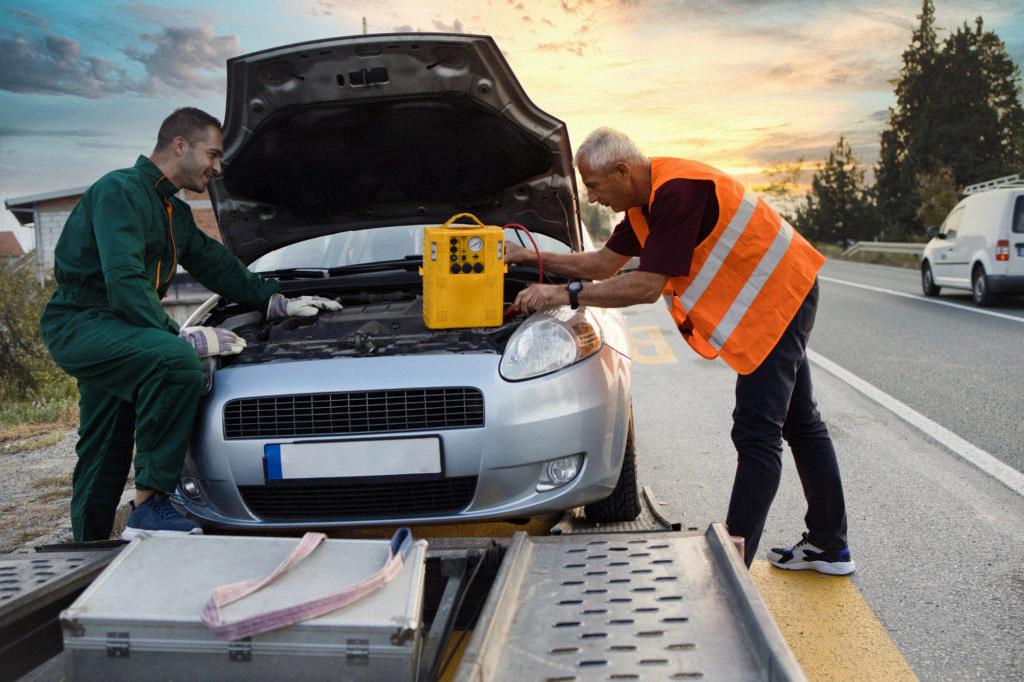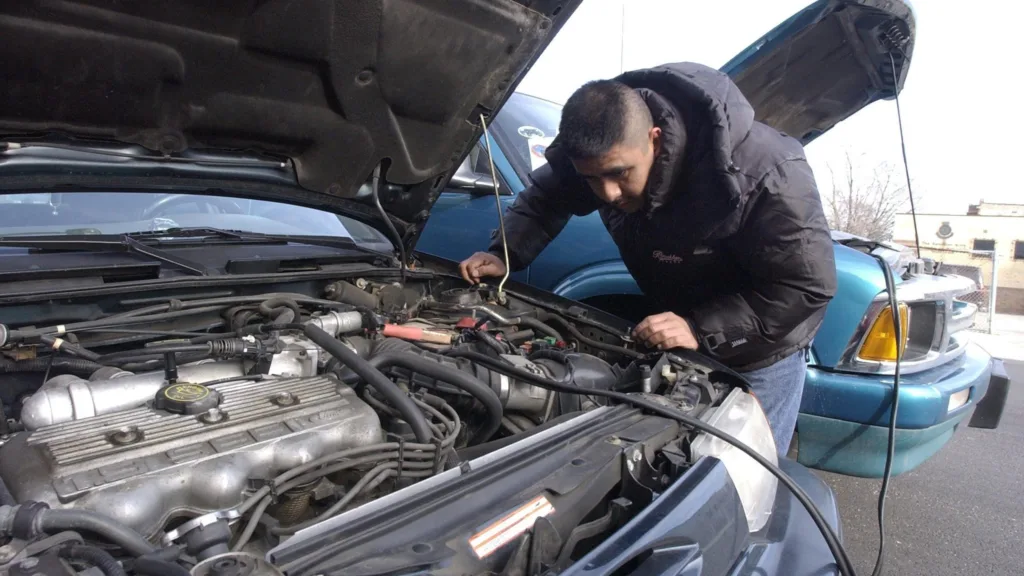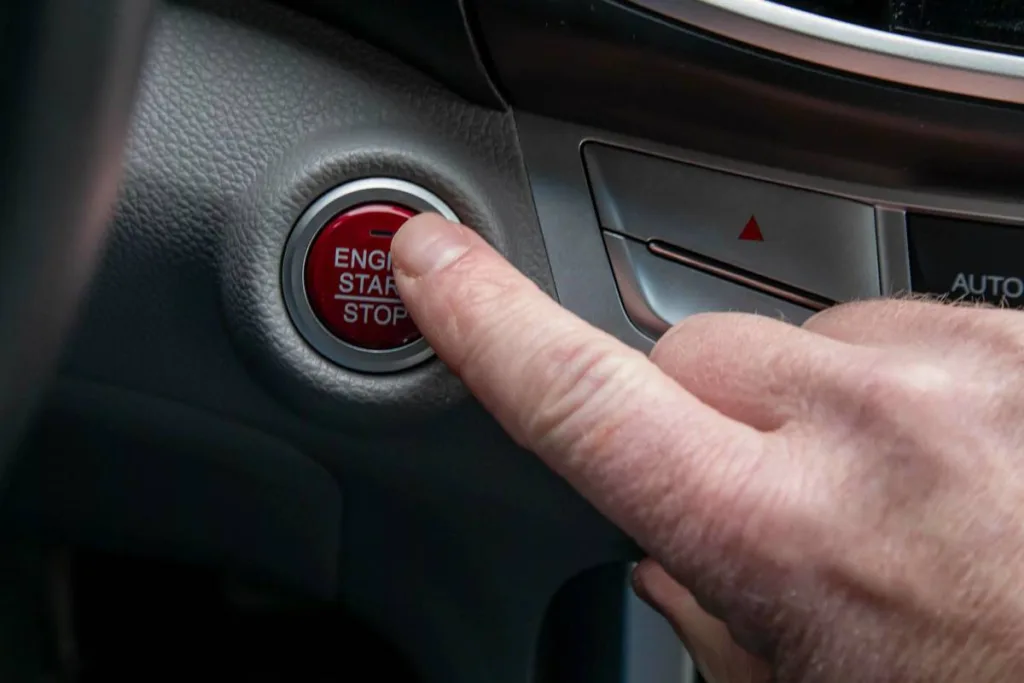Starting a car can be a stressful experience at times; especially when it hesitates to start or takes several attempts to get going. This could be caused by a number of issues but luckily, there are ways to diagnose the problem and get your car running smoothly again.
A common cause of a car hesitating to start is a weak battery. When the battery is weak, it can struggle to provide enouh power to turn over the engine and make it run. If this is the case, you may hear rapid clicking or loud cranking when trying to start your car. It’s important to check your battery’s voltage and see if it needs replacing or if it just needs charging up. You can also try jump starting it with another vehicle.
Another possible cause of a sluggish start is a poor connection in the starting circuit or starter motor itself. This could be due to corrosion on the battery terminals, loose wiring connections or faulty components that need replacing. It’s essential that you have this issue checked out as soon as possible as the poor connection could hinder your engine’s performance and cause further problems down the line.
The cold weather can also affect how quickly your car starts up in the morning, as low temperatures can cause your battery to produce less current, making it harder for your engine to turn over. Another issue that may arise from cold weather is that engine oil may not flow as well as it should, which puts even more strain on the battery. To avoid this issue, make sure you keep your oil level topped up and use an oil with a lower viscosity rating in colder months so that it flows more freely around the engine.
If none of these solutions solve your problem, then you may have an issue with something like your fuel pump or ignition system; both of which require professional attention from an experienced mechanic.
Overall, starting problems can be frustrating but diagnosing and fixing them doesn’t have to be difficult! Hopefully this blog post has given you some insight into some of the possible causes of why your car hesitates when starting and how they can be addressed accordingly!
Causes of Delayed Car Start-Up
Delay in starting a car can be caused by a few different factors. A weak battery or a poor connection in the starting circuit can prevent your car from being able to get enough power to start. It’s also possible that the charging system is malfunctioning, preventing the battery from getting enough charge while your car is parked. Another possibility is that something is draining the battery while it’s not being used, such as a faulty light or accessory. If this issue only happens first thing in the morning, then it’s likely an issue with the battery or electrical system.

Source: mycarmakesnoise.com
Troubleshooting a Car That Struggles to Start
When a car is struggling to start, it’s likely due to an issue with the battery or alternator. You may hear a rapid clicking or loud cranking sound when you turn the key in the ignition, which could indicate a problem with the battery or alternator. Additionally, you may hear a grinding noise that could be indicative of a problem with the starter. If you’re unsure what exactly is causing this noise, it’s best to take your car to an automotive technician to be inspected and diagnosed.
Troubleshooting Car Starting Issues
Weather conditions can play a significant role in how well your car starts. Cold temperatures can make it difficult for a car to start as the engine oil thickens and becomes more viscous, making it harder for the engine parts to move freely. Cold weather also decreases battery power, which could be why your car is slow to start but runs fine once it does.
Another potential cause of your issue could be wiring or electrical issues. Loose connections or corroded wires can prevent the necessary current from flowing through the system, resulting in a slow start. You should check all fuses and connections to ensure everything is properly connected and in good condition.
The starter motor may also be at fault here. The starter motor turns over the engine when you first turn on your key, so if there are any issues with it you may experience a sluggish start-up process. If this is the case, you may need to get the starter motor replaced by a qualified mechanic.
Finally, fuel pump health can be an issue here as well. The fuel pump takes fuel from the gas tank and sends it into the engine where it is used by the combustion process. If there are any issues with this component then your car will likely struggle to start as it won’t have eough fuel to run properly. You should consider getting this checked out by a mechanic if you suspect any problems with your fuel pump.
The Causes of Morning Car Hesitation When Starting
In cold temperatures, your car battery has difficulty producing enough current to start the engine. This is because the chemical reactions in the battery slow down as the temperature drops. Additionally, the cold can cause your engine oil to thicken, making it more difficult for it to lubricate and turn over properly. To make matters worse, components like spark plugs and fuel injectors may become clogged with condensation when they’re exposed to cold temperatures overnight. All of these factors contribute to why your car may hesitate or take longer than usual to start in the morning.
Signs of a Failing Starter
When your starter is failing, there are a few tell-tale signs that you can look out for. The most common sign is that the engine won’t turn over when you try to start the car. You may also hear unusual noises, such as clinking, grinding, or whirring coming from the starter area. Additionally, you may experience intermittent problems with starting your car, or you may even see smoke coming from under the hood when trying to start it. If any of these symptoms occur, it’s important to have your starter checked by a professional to ensure it’s functioning correctly.

Troubleshooting a Car That Does Not Start on the First Try
There are a number of potential causes for a car not starting on the fist try, including a weak fuel pump, leaking fuel injectors, worn starter, weak battery, or faulty temperature sensor. A weak fuel pump may reduce the pressure of the fuel entering the engine and cause it to struggle to start. Leaking fuel injectors can cause an uneven mixture in the cylinder which will prevent ignition. Similarly, a worn starter may be unable to generate enough power to turn over the engine. A weak battery can also impair its ability to provide enough power to get the engine going. Lastly, a faulty temperature sensor may cause incorrect readings which could lead to incorrect timing and prevent ignition. To accurately diagnose and fix this issue, it is recommended that you take your vehicle to a certified mechanic who can inspect it in-depth and determine what is causing the problem.
Signs of a Weak Starter
A weak starter can sound like the engine is struggling to turn over. It may make a clicking noise, but it will be much quieter and slower than the sound of a bad starter. This can be accompanied by a grinding or buzzing noise that indiates the starter is struggling to engage the flywheel. You may also notice that when you try to start the vehicle, it takes longer than normal for it to turn over. If your vehicle has an electronic ignition system, you may notice a faint clicking noise coming from under the hood as well. In any case, if your vehicle has difficulty starting, it’s best to have it checked out by a professional as soon as possible.
The Meaning of Slow Cranking
Slow cranking means that the starter is not spinning fast enough to start the engine. This can be caused by a variety of issues, such as a dead battery, corroded or loose cables, or a faulty starter motor. In order to diagnose the issue, it’s important to check the battery and cables first. If they are within specification and the vehicle still cranks slowly, then it’s time to replace the starter.
Troubleshooting Difficulty Starting a Car
There are several causes of hard starting when it comes to your car. One of the most common is a weak or failing fuel pump. If the fuel pump can’t prvide sufficient pressure to the fuel injectors, it can cause your engine to struggle to start. Another potential cause is a weak battery, which can be caused by prolonged exposure to extreme temperatures or simply age. Faulty spark plugs or wiring can also prevent your car from starting correctly, as well as a clogged air filter that restricts the flow of air into the engine. Lastly, an issue with your ignition system could be causing your car to start harder and harder over time.

Conclusion
In conclusion, car hesitating to start can be a result of multiple factors. These include a marginal battery, a poor connection in the starting circuit or starter, a charging-system problem, or the battery being drained while the car’s parked. Other possible causes are weather conditions, battery health, wiring issues, starter motor concerns and fuel-pump health. If you experience this issue with your car, it is important to have it checked out as soon as possible to ensure that any underlying problems are addressed and resolved properly.
